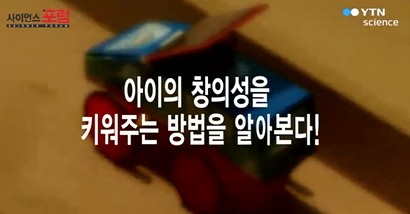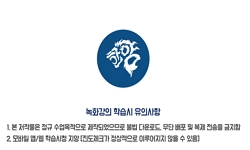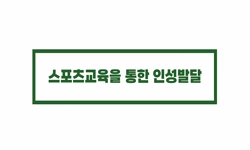Despite economic growth and abundant life, that our society has suffered many incidents and accidents is not because it does not have a manual or does not know contents of the manual. The problem is due to the fact that there is no willing to practice...
http://chineseinput.net/에서 pinyin(병음)방식으로 중국어를 변환할 수 있습니다.
변환된 중국어를 복사하여 사용하시면 됩니다.
- 中文 을 입력하시려면 zhongwen을 입력하시고 space를누르시면됩니다.
- 北京 을 입력하시려면 beijing을 입력하시고 space를 누르시면 됩니다.

실행으로서의 인성교육 - 칸트의 『교육학 강의』를 중심으로 - = Character Education as Practice - Focusing On Kant`s Uber Padagogik -
한글로보기부가정보
다국어 초록 (Multilingual Abstract)
Despite economic growth and abundant life, that our society has suffered many incidents and accidents is not because it does not have a manual or does not know contents of the manual. The problem is due to the fact that there is no willing to practice as much as you know. Although our society conducted the character education to overcome the crisis and to establish the correct values, it has not achieved its educational effect. Because, lost its direction, most of the character education was developed too hastily in conjunction with the methodology of educational problems, such as the violence in schools, the multi-cultural education, the action programs associated with parents, the environmental improvement of education, the innovation of education system. In this situation, Kant`s practical philosophy, especially his emphasis on morality can satisfy our demands of the character education. Eventually, the character education should be performed in practical level as well in theoretical level. In particular, Kant`s pedagogical theories involve contents about the theory and practice. In Kant, the goal of education is to cultivate morality which is the highest goal of education and the highest goal of human beings at once. So, based on a deep insights of the human being, he argued that students should be the owner of a strong will through the development of character. In other words, he saw that students should be human to act in accordance with good will or rational will. In particular, because he saw that the human to act according to the moral law which practical reason commands is moral human being, Kant argued that the moral human beings are possible through a continuous practice as well as future-oriented education. In this sense, this paper tries to look for the direction and methods of character education by considering kant`s practical philosophy that insisted the discipline of emotion and education of virtue.
참고문헌 (Reference)
1 박찬구, "한국의 도덕교육에서 칸트 윤리적 접근법이 가지는 의의" 한국칸트학회 (14) : 115-146, 2004
2 정희태, "학교폭력 예방과 갈등해결 방안 : 인성 교육적 접근" 한국윤리학회 1 (1): 123-162, 2011
3 권의섭, "포스트모던 시대의 인성교육의 방향과 실천" 2015
4 김정래, "칸트의 도덕론과 교육이론의 불일치 문제" 한국교육철학회 (42) : 27-51, 2010
5 임마누엘 칸트, "칸트의 교육학 강의 (역주)- 서론에 관한 철학적 주석을 담은 증보판 -." 철학과 현실사 2007
6 이진오, "칸트의 교육이론과 세계 개념의 철학" 한국기독교교육정보학회 (9) : 245-278, 2004
7 임마누엘 칸트, "칸트의 교육사상" 배영사 1991
8 김정주, "칸트에서 교육학의 윤리학적 정초에 대한 연구" 철학연구회 (84) : 141-169, 2009
9 신춘호, "칸트 윤리학에 비추어 본 도덕과 교육의 성격" 한국도덕교육학회 17 (17): 85-106, 2005
10 김정주, "칸트 도덕교육론과 그 한계 및 의의" 2014
1 박찬구, "한국의 도덕교육에서 칸트 윤리적 접근법이 가지는 의의" 한국칸트학회 (14) : 115-146, 2004
2 정희태, "학교폭력 예방과 갈등해결 방안 : 인성 교육적 접근" 한국윤리학회 1 (1): 123-162, 2011
3 권의섭, "포스트모던 시대의 인성교육의 방향과 실천" 2015
4 김정래, "칸트의 도덕론과 교육이론의 불일치 문제" 한국교육철학회 (42) : 27-51, 2010
5 임마누엘 칸트, "칸트의 교육학 강의 (역주)- 서론에 관한 철학적 주석을 담은 증보판 -." 철학과 현실사 2007
6 이진오, "칸트의 교육이론과 세계 개념의 철학" 한국기독교교육정보학회 (9) : 245-278, 2004
7 임마누엘 칸트, "칸트의 교육사상" 배영사 1991
8 김정주, "칸트에서 교육학의 윤리학적 정초에 대한 연구" 철학연구회 (84) : 141-169, 2009
9 신춘호, "칸트 윤리학에 비추어 본 도덕과 교육의 성격" 한국도덕교육학회 17 (17): 85-106, 2005
10 김정주, "칸트 도덕교육론과 그 한계 및 의의" 2014
11 박찬석, "창의․인성 교육의 도덕과 적용 연구" 한국초등도덕교육학회 (40) : 129-152, 2012
12 교육과학기술부, "창의/인성교육을 위한 기본 방안 , In 창의와 배려의 조화를 통한 인재 육성" 2010
13 김종국, "자유의 강제.『교육학 강의』(칸트)에 대한 실천철학적 독해" 한국칸트학회 (23) : 33-52, 2009
14 정창우, "인성교육의 이해와 실천" 교육과학사 2015
15 금교영, "인성교육을 위한 철학적 반성" 영남대학교 출판부 1998
16 이영문, "인성교육을 위한 우리나라 학교 다문화교육의 방향 탐색" 한국초등도덕교육학회 (40) : 265-286, 2012
17 이은진, "인성교육에 대한 인식과 실태" 한국종교교육학회 38 : 25-53, 2012
18 조강모, "인성교육과 도덕과 교육의 관계 설정" 한국초등도덕교육학회 (33) : 5-32, 2010
19 교육과학기술부, "인성교육 비전 수립 및 실천방안 연구 , 인성교육 비전수립을 위한 정책연구" 2012
20 한국교육학회, "인성교육" 문음사 1998
21 강선보, "인성교육" 양서원 2008
22 정창우, "인성 교육에 대한 성찰과 도덕과 교육의 지향" 한국윤리학회 1 (1): 1-33, 2010
23 임마누엘 칸트, "이성의 한계 안에서의 종교" 아카넷 2011
24 임마누엘 칸트, "윤리형이상학정초" 아카넷 2005
25 임마누엘 칸트, "실천이성비판" 아카넷 2006
26 임마누엘 칸트, "실용적 관점에서 본 인간학" 울산대 출판부 1998
27 추병완, "도덕교육의 이해" 인간사랑 2011
28 김태훈, "도덕과에서 인성교육 방안 연구" 한국도덕윤리과교육학회 8 : 1997
29 문성학, "도덕·윤리교육의 정체성과 기존의 입장에 대한 비판(I)" 새한철학회 64 (64): 241-267, 2011
30 장성모, "人性의 개념과 人性敎育" 한국초등교육학회 10 : 1996
31 김민수, "‘인성교육’ 담론에서 ‘인성’ 개념의 근거" 한국교양교육학회 8 (8): 169-206, 2014
32 Kant, I., "Werkausgabe, Bd. 8" 1982
33 Kant, I., "Werkausgabe, Bd. 8" 1982
34 Kant, I., "Werkausgabe, Bd. 7" 1974
35 Kant, I., "Werkausgabe, Bd. 7" 1974
36 Kant, I., "Werkausgabe, Bd. 12" 1977
37 Potter, N., "Kant on ends that are at the same time duties" University of Southern California 66 : 1985
38 Berkowitz, M. W., "Bringing in a New Era in Character Education" Hoover Institution 2002
39 강선보, "21세기 인성교육의 방향설정을 위한 이론적 기초 연구" 교육문제연구소 (30) : 1-38, 2008
동일학술지(권/호) 다른 논문
-
계몽 정신에 부응하는 철학의 사명과 미에 대한 지성적 관심
- 한국칸트학회
- 이혜진 ( Lee Hye-jin )
- 2016
- KCI등재
-
- 한국칸트학회
- 김석수 ( Kim Suk-soo )
- 2016
- KCI등재
-
칸트의 『덕론』은 타율의 윤리인가? - “덕의무” 개념에 관한 발전사적 연구를 중심으로 -
- 한국칸트학회
- 김수배 ( Kim Soo-bae )
- 2016
- KCI등재
-
칸트의 선험적 논리학과 라캉의 정신분석적 논리학의 인식론적 전제에 대한 비판과 구조-구성주의 인식론 정초(II)
- 한국칸트학회
- 문장수 ( Moun Jean-sou )
- 2016
- KCI등재
분석정보
인용정보 인용지수 설명보기
학술지 이력
| 연월일 | 이력구분 | 이력상세 | 등재구분 |
|---|---|---|---|
| 2027 | 평가예정 | 재인증평가 신청대상 (재인증) | |
| 2021-01-01 | 평가 | 등재학술지 유지 (재인증) |  |
| 2018-01-01 | 평가 | 등재학술지 유지 (등재유지) |  |
| 2015-01-01 | 평가 | 등재학술지 유지 (등재유지) |  |
| 2011-01-01 | 평가 | 등재학술지 유지 (등재유지) |  |
| 2009-01-01 | 평가 | 등재학술지 유지 (등재유지) |  |
| 2006-01-01 | 평가 | 등재학술지 선정 (등재후보2차) |  |
| 2005-01-01 | 평가 | 등재후보 1차 PASS (등재후보1차) |  |
| 2004-01-01 | 평가 | 등재후보학술지 유지 (등재후보1차) |  |
| 2003-01-01 | 평가 | 등재후보학술지 선정 (신규평가) |  |
학술지 인용정보
| 기준연도 | WOS-KCI 통합IF(2년) | KCIF(2년) | KCIF(3년) |
|---|---|---|---|
| 2016 | 0.35 | 0.35 | 0.52 |
| KCIF(4년) | KCIF(5년) | 중심성지수(3년) | 즉시성지수 |
| 0.47 | 0.59 | 1.734 | 0.13 |




 KISS
KISS






